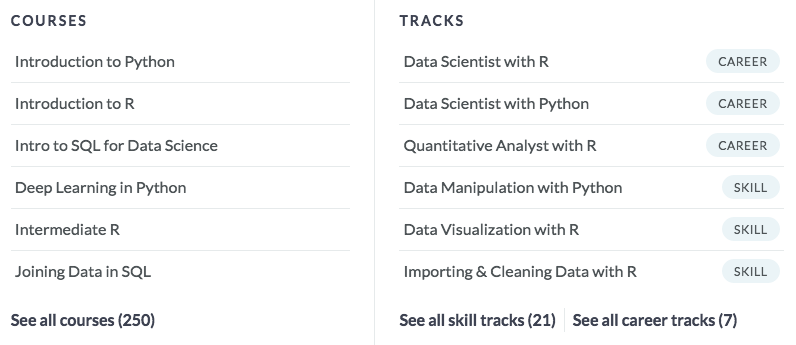class: center, middle, inverse, title-slide # Week 14 - Next Steps ## Suggestions <html> <div style="float:left"> </div> <hr color='#EB811B' size=1px width=800px> </html> ### Danilo Freire ### 29 April 2019 --- <style> .remark-slide-number { position: inherit; } .remark-slide-number .progress-bar-container { position: absolute; bottom: 0; height: 6px; display: block; left: 0; right: 0; } .remark-slide-number .progress-bar { height: 100%; background-color: #EB811B; } .orange { color: #EB811B; } </style> # Congratulations! .font150[ * You've made it to the end of this course * We've seen many things since the start of the semester * What you've learned: - Two computer languages: R and Markdown - Plot graphs, calculate correlations, check descriptive statistics - Calculate permutations, combinations and understand probability - Test hypotheses, run statistical models, read scientific literature ] --- class: inverse, center, middle # What to do next? <html><div style='float:left'></div><hr color='#EB811B' size=1px width=720px></html> --- # What To Do Next? .font150[ * Keep on learning statistics * Improve your coding skills * Know more about the mathematical foundations of statistical modelling * Learn how to run different types of experiments ] --- # More Statistics .font130[ * [ECON 1629: Applied Research Methods for Economists](https://canvas.brown.edu/courses/1016763/assignments/syllabus) - Covers OLS, fixed effects, diff-in-diff, regression discontinuity, experiments (undergraduate) * [ECON 1660: Big Data](https://dan.bjorkegren.com/bigdata/) - Introduction to machine learning with Python (undergraduate) * [POLS 2000 - Strategies of Inquiry and Research Design](https://coursetools.brown.edu/syllabus/POLS:2000:2019-Spring:S01) - Teaches not only stats (focus on natural and lab experiments), but research design in general - Your current maths and R skills are _more than sufficient_ to follow this course - Ask for permission to attend: graduate students only ] --- # More Statistics .font150[ * [Coursera: Data Science Specialisation](https://www.coursera.org/specializations/jhu-data-science) - R, Git, build basic machine learning algorithms (10 modules) * [Coursera: Deep Learning Specialisation](https://www.coursera.org/specializations/deep-learning) - More advanced (requires introductory linear algebra and calculus) - Build your own neural networks and other artificial intelligence algorithms (5 courses) ] --- # More Programming .font150[ * [DataCamp](https://www.datacamp.com/) - Best website I know to learn R, Python, SQL, and other data science skills - "Career tracks" are _very_ good ] .center[] --- # More Mathematics .font150[ * [Khan Academy](https://www.khanacademy.org/) - Modules on (pre-)calculus, linear algebra and probability * Any maths course from the Econ department - List of courses [here](https://bulletin.brown.edu/the-college/concentrations/mtec/) ] --- # More Experiments .center[] .font150[ * [ICPSR Summer school](https://www.icpsr.umich.edu/icpsrweb/sumprog/) * [Summer course in field experiments (Florence, Italy)](https://www.icpsr.umich.edu/icpsrweb/sumprog/courses/0259) ] --- class: inverse, center, middle # Presentation #1 <html><div style='float:left'></div><hr color='#EB811B' size=1px width=720px></html>